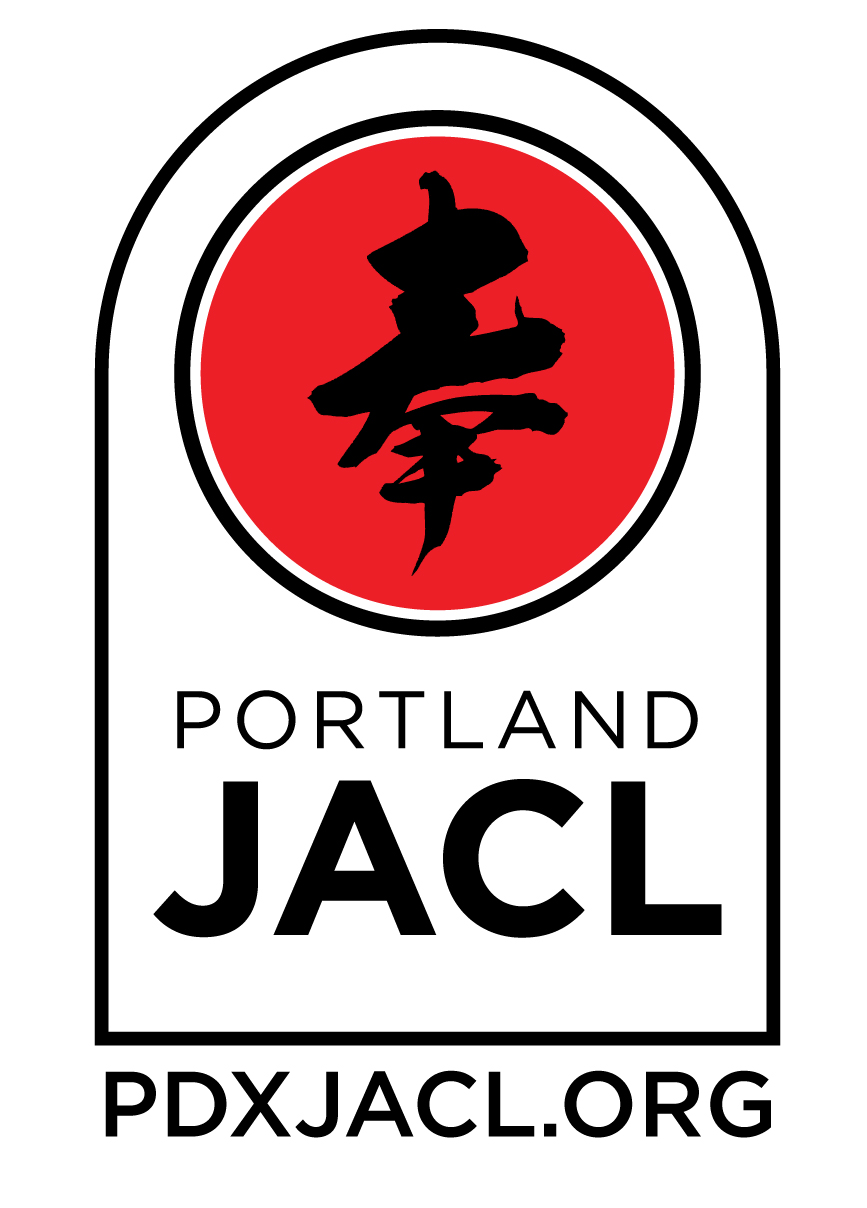By Spencer Uemura
It’s May and we are deep into Spring! It is around this time of year that I tend to feel a renewed energy for pursuing goals in my life that have laid dormant over the winter months. The world seems to blossom in a burst of colorful petals and birdsong as I also come to life again.
As I write this, I reflect fondly on my Hanami outing to see the sakura on the waterfront a few weeks ago. My spouse and I bundled up our infant daughter and went with some of her family into the blustery cold to see this year’s blooms. The waterfront was packed! I was both surprised and moved to see so many people out on a chilly weekday morning, doing something that feels so Japanese and so very Portland. The pom poms of delicate blush pink petals were so idyllic, I wished I was taller so I could see them up close.
However, it struck me that the crowds of people (and dogs and strollers) were noticeably dense around the cherry blossom trees, and lacking in the adjacent Japanese American Historical Plaza. The stones engraved with the experiences of our elders and ancestors sat lonely, overshadowed by the floral display just feet away. How many of the visitors learned that the trees were planted along the waterfront as a gift from Japan for the Plaza’s dedication? But maybe these are just my own assumptions about what I saw. Maybe I have my own feelings of guilt for not sharing this history with my White in-laws and my connection to it. Silencing myself felt safer than letting them know this deep part of my experience.
As a Japanese American mental health therapist, I feel like the month of May is my time to shine. It is designated as both Mental Health Awareness Month and Asian American and Pacific Islander Heritage Month. As a response to fears of stigma and judgment, we can often hide our emotional experience and the impacts of our heritage. But in my professional role, personal life, and as a community member, I know the impacts that shame and silence have on our physical and emotional health. They can eat away at our self-esteem and challenge our resilience, exacerbating experiences like anxiety and depression, and leave us feeling lost.
We Japanese Americans are truly privileged to have an increasingly diverse community, full of intersecting and diverging experiences. These stories are vital to our strength. We cover a range of generations, from Shin-Issei recent immigrants to the Rokusei sixth generation descendants of immigration. We are multiracial and monoracial, bilingual and beginners, spiritual and secular. We are straight, queer, cisgender, transgender, and nonbinary. We exist across all of these experiences and identities, and we are here to stay.
So what are we to do? Maybe you’re like me, and you find yourself hiding parts of your heritage and cultural experience with others. Maybe you notice the ways that you try to put up a front, to convince others that life is not difficult for you. My encouragement is to start small and experiment with new ways of relating to those around you. This might mean sharing Japanese food with a friend who wants to try new food, opening up to a family member about some challenges in your life, or otherwise practicing making yourself more visible in your relationships. Like the waterfront sakura, your experiences are important and they deserve to be witnessed and appreciated. May we see each other and allow ourselves to be seen.
As before, I’m happy to be a resource for those who might have questions about mental health therapy. Seeking additional support can be a difficult but important first step, and I’d love to help if I can. Feel free to contact me at Spencer@pdxjacl.org.
